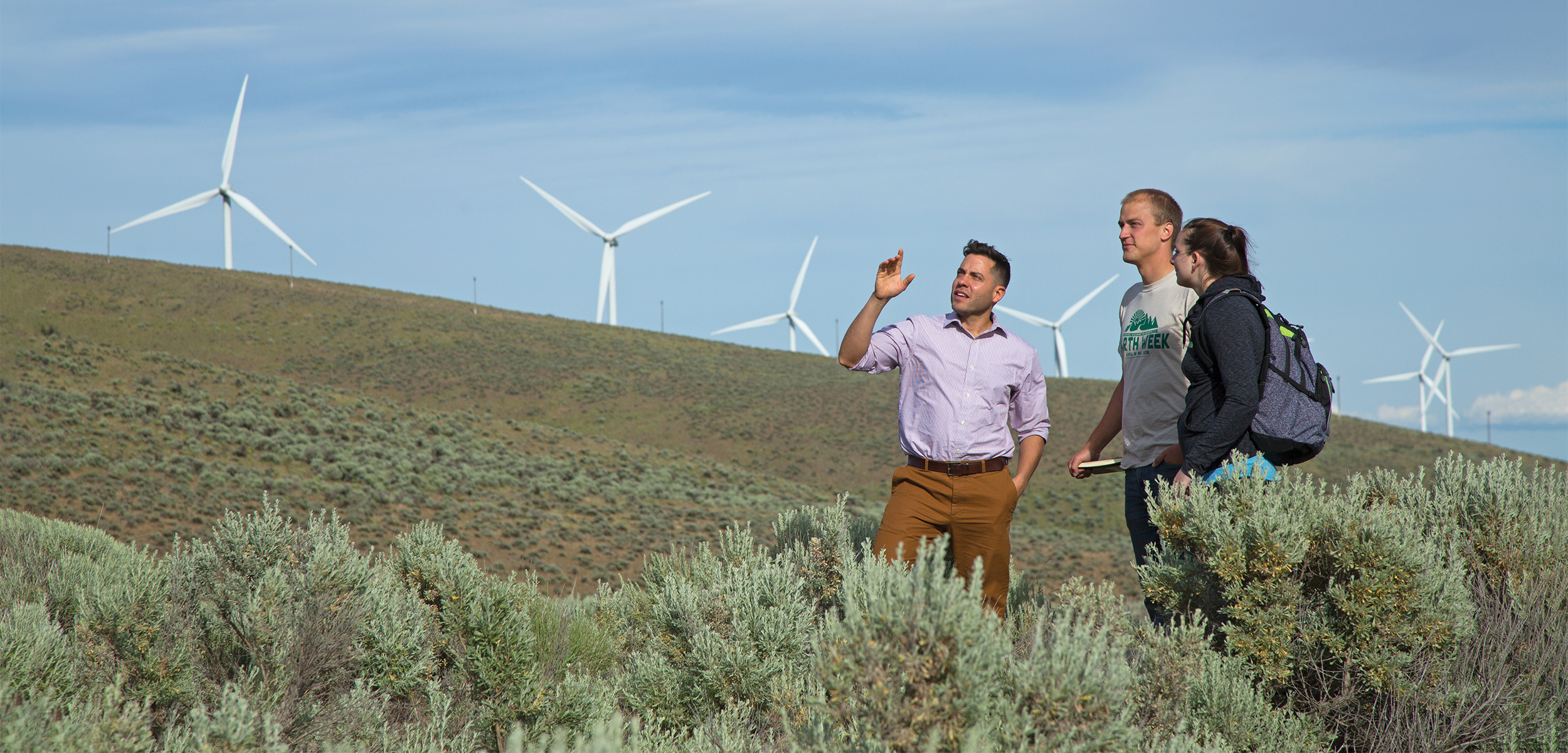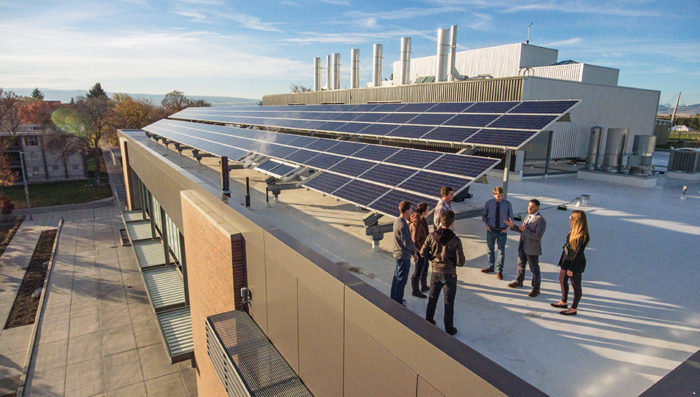
Every aspect of our lives is touched by energy, whether it’s the fuel in cars, the electricity in wires, or the wind in the sails of that boat on the horizon. The myriad ways in which we use what the world provides continues to expand with every innovation—and is impacted by every shortage.
In such a rapidly shifting landscape, it has become necessary to change the way we educate the professionals in charge of this giant global energy network.
CWU’s Integrated Energy Management (IEM) program, a Bachelor of Science degree in the Geography department that offers three specializations within the College of the Sciences, has approached this issue in a pragmatic, solution-oriented way since its inception in fall 2015.
IEM Director Elvin Delgado, who joined CWU in 2012 and played a key role in the program’s creation, said the stakeholders have taken a practical approach from the beginning.
“When I first came to the area, we worked with the local utility providers to determine their needs at that time,” Delgado said. “What we discovered was that utilities in Washington were losing too many employees to retirement. They needed universities to produce a different kind of energy management professional, which is where the Integrated Energy Management program comes from.”
Central is the only institution in the Pacific Northwest that offers a truly interdisciplinary program which integrates the entire energy spectrum. IEM features three specializations: energy policy, energy business, and power systems. Each focuses on a specific area of the overall field, with an array of opportunities for interdisciplinary study.

“We don’t train technocrats,” Delgado said. “We’re training administrators and managers—the professionals who will be working in energy businesses on the ground, and, depending on their specialization, facilitating the administration of those companies.”
The energy policy specialization offers classes in geography, economics, and more to provide students with the tools they need to help energy companies comply with rapidly evolving environmental and regulatory legislation while running an efficient business. Energy business majors focus on the day-to-day tasks required to manage an energy company.
For this reason, many of the classes in the specialization are offered through the College of Business. Since CWU’s business college is fully accredited, energy business majors come away with a leg up on the competition. The Integrated Power Systems track provides courses that train students in topics related to energy technologies, physical understandings of power systems, and the environmental implications of energy production, distribution, and consumption.
Delgado explained this breadth of knowledge is essential to the program he helped initiate.
“A traditional energy manager would be something like an electrical or systems engineer,” he said. “We wanted to create something different, geared more toward the working sector and current job market. Based on our conversations with employers, we designed a curriculum that did not separate fossil fuels from renewable energy, but [instead], integrate them.”

With the threat of anthropogenic climate change, it is tempting to focus entirely on renewable energy, as opposed to the fossil fuels partially responsible for the climate crisis. Central’s IEM program is intended to be a hybrid of the two approaches to powering our world, in hopes of finding a smoother transition toward cleaner energy sources.
“Many energy management programs around the U.S. focus exclusively on clean, renewable energy—which is good,” Delgado said. “However, fossil fuels are very much a part of the global energy landscape, and because of the interconnected nature of energy resources and trade, a working knowledge of how the fossil fuel market works is necessary for a successful transition to cleaner energy.”
Recent data confirms that the investment in market research has paid off. The IEM program has seen a high job placement rate, partially because of the flexibility it offers students. While all CWU majors come with elective requirements, IEM majors may fulfill these electives with an apprenticeship or internship.
Some choose to take a variety of elective courses, while others choose to complete an apprenticeship instead, which can substitute for the electives. This allows them to take a combination of some electives and a shorter apprenticeship experience to fulfill the total number of credits required, helping them enter the job market equipped with a well-rounded knowledge that will help them stand out.
“Our first graduate did a double major in power systems and mechanical engineering,” Delgado said. “She did a six-month apprenticeship in Auburn and was offered a full-time position six months before she graduated. We’ve been able to replicate that success story many times.”
Washington has announced plans to become completely independent from fossil fuels by 2050, and programs like IEM train people who will make those goals more achievable.
In training a generation of integrated energy management professionals to be proficient with both fossil fuels and renewable energy, CWU has laid the groundwork for a transition to a cleaner energy future that doesn’t involve massive job losses.
“Ideally, we want to be good stewards of the earth,” Delgado said. “We understand that our consumption behavior needs to shift away from high-impact resource use.”






comments powered by Disqus